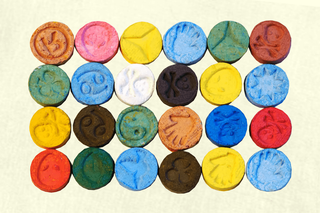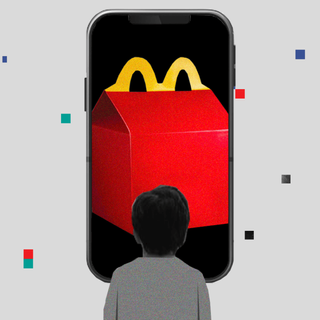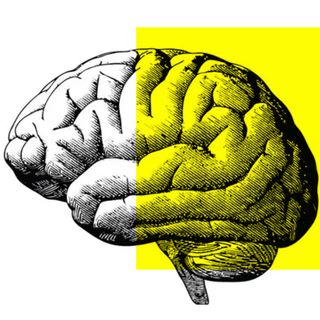
New Evidence Supports the Use of MDMA – the Drug in Ecstasy – in PTSD Treatment
MDMA-assisted psychotherapy has been shown to produce positive results in people who don’t respond to traditional forms of trauma treatment.

A popular and divisive body of research around using hallucinogens, such as LSD and ketamine, for treating mental health conditions has emerged in the last decade. The most compelling evidence so far backs the efficacy of MDMA — colloquially called ecstasy — in treating post-traumatic stress disorder (PTSD). MDMA-assisted psychotherapy sessions were helping to alleviate PTSD, not simply suppress symptoms, according to a new analysis of clinical trials over the last six years points. When used in a regulated, controlled way, experts think it could prove a formidable treatment option for individuals who don’t respond to existing recovery channels.
Trauma has no clear definition. For people with PTSD, any recollectionof physical or emotional trauma (assault, abuse, natural disasters, combat-related violence, childhood trauma) can trigger debilitating anxiety, panic attacks, and other symptoms. Besides exposure to trauma, research in recent years has also suggested thatthe likelihood of developing PTSD is partly determined by genetics. Some experts argue living through the pandemic could lead to developing PTSD symptoms too.
Currently, PTSD treatments involve antidepressant medications and psychotherapy; in other cases, experts use exposure therapy (gradually exposing people to traumatic memories or people they avoid until a point they feel safe). However, the impact of these measures is modest at best and does not address symptoms in the long run. There exists a treatment gap when it comes to PTSD and similar mental health conditions.
Which is where recreational drugs like MDMA come into the picture. MDMA, or 3,4-methylenedioxymethamphetamine, is “an agent that affects a wide range of neurotransmitters, or brain chemicals facilitating signaling between neurons including serotonin, dopamine and norepinephrine,” Arash Javanbakht, a psychiatrist specializing in PTSD treatment, noted in The Conversation.
In MDMA-assisted psychotherapy, “patients take MDMA as a pill upon entering a psychiatrist’s office and then work with a team of therapists who help them divulge traumatic events or discuss aspects of those events over the course of several hours,” researchers of the current analysis wrote.
The most recent meta-analysis, published in the Journal of Clinical Pharmacology, involved sending a questionnaire to participants who had their last MDMA session 12 months ago. The results were such: 86% of participants said they received substantial benefits; 84% reported improved feelings of well-being, 71% had fewer nightmares; 69% had less anxiety; 66% had improved sleep.
Related on The Swaddle:
Many Indians Are Experimenting With Psychedelics, Other Drugs to Deal With Mental Health Issues
Just how does MDMA impact the learning brain? The jury is still out, but there are some theories. “MDMA may enhance psychotherapy by reducing anxiety during recall of trauma memories, helping the patient feel better about himself and others, increasing bonding with the therapist and enhancing extinction learning,” Javanbakht explained. Even studies from the 1980s found MDMA worked as an entactogen, generating feelings of love and warmth.
This is how Alex, a 23-year-old survivor of childhood sexual abuse described their experience: “… you endure trauma, your brain, and body stores it away from your consciousness, and you feel depressed on a daily basis and don’t know why. Then, when you go to MDMA therapy, your defense mechanisms go away and your brain takes memories and feelings from a stored box in your brain and lets it wash over you. You process it, relive it and feel it. You might self soothe, you might cry, you might talk about what happened. And then when you’re done processing it, your brain lets go of that memory and the feelings associated with it.”
In May this year, a study published in Nature Medicine included the results of the first Phase 3 trial of psychedelic-assisted therapy. It found patients who suffered from “intractable” forms of the condition (which are considered resistant to treatment) — such as childhood trauma — had improved symptoms due to MDMA use.
Related on The Swaddle:
Ketamine Infusions Can Reduce PTSD Symptoms for Weeks at a Time, Researchers Find
The growing consensus among health experts is drugs such as MDMA and magic mushrooms can help treat trauma, depression, anxiety, among an array of conditions. Another review of 83 published papers, published in the British Journal of Psychiatry Open, spoke of ketamine’s (used for introducing and maintaining anesthesia) role in treating depression. “Our findings suggest that ketamine may be useful in providing rapid relief from depression and suicidal thoughts, creating a window of opportunity for further therapeutic interventions to be effective,” the researchers wrote.
“It’s important to note that this review examined ketamine administration in carefully controlled clinical settings where any risks of ketamine can be safely managed.”
The anxiety around MDMA and other psychedelics is one of control and regulation. When it comes to MDMA-assisted psychotherapy, the MDMA products are of pharmaceutical grade. “This means that, unlike illicitly obtained street products, they do not contain other substances of abuse, such as methamphetamine, or contaminants like heavy metals, bacteria, or mold,” authors of the current analysis explained. Yet, there remains a high abuse potential. MDMA, as the drug used in ecstasy (a street drug), could lead to high addiction among users. It can also cause vivid memories that not everyone is prepared to process; moreover, combining it with certain medications and antidepressants can be dangerous.
But research, much like the present one, underscores that the medicines worked best in tandem with psychotherapy. “MDMA therapy, if legalized by the FDA, would be a breakthrough treatment that could revolutionize our mental-health system and help patients with PTSD with only a few treatments that have lasting effects,” psychotherapist Rebecca Hendrix noted.
MDMA-assisted psychotherapy may become an approved option for PTSD by the end of 2023 in the U.S. If this is the case, experts note the importance of training psychotherapists to administer the drug. Medics should sign up for training to see the potential for MDMA to help manage an epidemic of mental illness, according to James Hawkins, a qualified doctor and psychotherapist.
“The hope is that these data could potentially lead to the legalization of a psychedelic medicine for the treatment of PTSD,” Jennifer M. Mitchell, the lead author on the study, told VICE World News, “and that this could pave the way for research on the efficacy of other psychedelic compounds for any number of indications.”
Saumya Kalia is an Associate Editor at The Swaddle. Her journalism and writing explore issues of social justice, digital sub-cultures, media ecosystem, literature, and memory as they cut across socio-cultural periods. You can reach her at @Saumya_Kalia.
Related


McDonald’s Ads Target Children in Developing Countries, Worsen Diet Problems: Study
